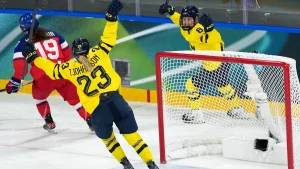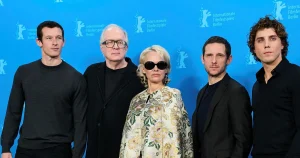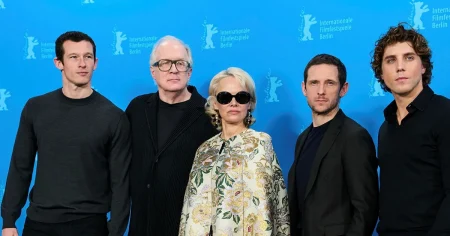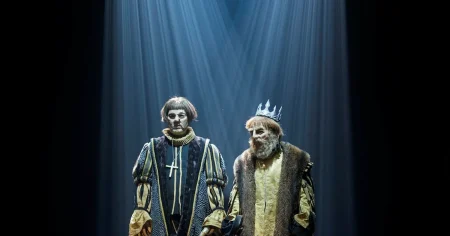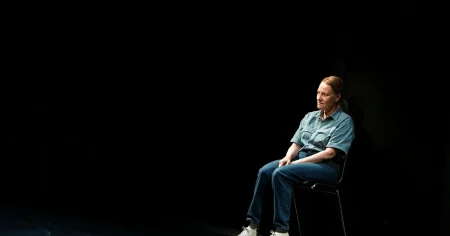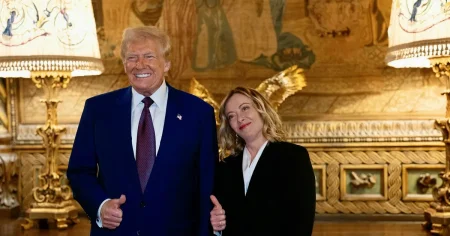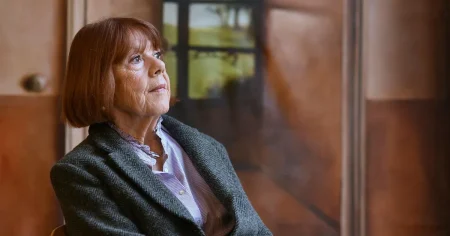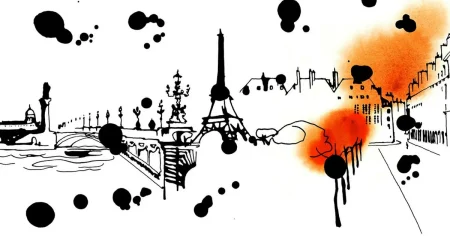The genesis of ”Stolen Music,” a poignant performance piece, originated from a simple idea: why not accompany a book about music suppressed by the Nazis with live performances of the very works it discusses? Sofia Winiarski, a conductor, was deeply moved by Anders Rydell’s book ”Stolen Music,” which explored the Nazis’ systematic theft and silencing of Jewish composers’ creations. Winiarski, already familiar with the theme through Anders Carlberg’s book ”Tones and Terror,” felt compelled to give these forgotten compositions a ”sounding form,” transforming a planned book discussion into a full-fledged performance featuring a string quartet, a string orchestra, and narrated excerpts from Rydell’s work.
The performance centers on music composed by Jewish artists murdered during the Holocaust. Winiarski aims to resurrect the music of composers like Pavel Haas, Ilse Weber, and Hans Krása, who remarkably continued composing even within the confines of the Theresienstadt concentration camp. The project quickly garnered support from the Folkoperan opera company and received crucial funding from the Micael Bindefeld Foundation for Holocaust Remembrance. Winiarski leads the collaborative effort, working closely with Rydell, dramaturg Tuvalisa Rangström, and Folkoperan’s chief conductor Henrik Schaefer. She plans to deepen her research in archives in Warsaw and during rehearsals, ensuring the historical authenticity and emotional resonance of the performance.
The 75-minute production, premiering on October 10th, will feature actor Magnus Roosmann reading selections from ”Stolen Music” alongside a dozen string musicians performing the rediscovered compositions. Winiarski envisions a tightly woven, immersive experience, transporting the audience to a time of immense musical innovation and tragic suppression. The chosen pieces reflect the vibrant musical landscape of the era, including elements of jazz, a genre despised by the Nazi regime. Beyond its artistic merit, the project holds deep personal significance for Winiarski. Her grandparents, both journalists and activists in the Polish resistance, survived concentration camps and met in Sweden after the war. Her grandmother’s strength and resilience, coupled with a softer side revealed through music, instilled in Winiarski a profound appreciation for music’s power to connect with history and unspoken emotions.
Winiarski’s family boasts a rich musical heritage. Her great-grandfather was a violinist and composer, and her two sisters are also musicians. Despite initially pursuing a career in economics, Winiarski eventually succumbed to music’s allure, a decision she has never regretted. Alongside her work on ”Stolen Music,” she continues to teach and conduct at the Royal Swedish Opera. Following its premiere, ”Stolen Music” will embark on a mini-tour to Jönköping, Uppsala, and Malmö, with potential for further expansion. Moreover, the project has inspired a spin-off initiative: an interactive theatre performance for high school students, further extending the reach of this vital historical and artistic endeavor.
The Micael Bindefeld Foundation recognized the importance of ”Stolen Music,” awarding Winiarski their annual Holocaust Remembrance Stipend. The foundation, established in 2015, supports projects that broaden public understanding of the Holocaust. Past recipients include researchers, filmmakers, and artists who have made significant contributions to Holocaust education and remembrance. The stipend was presented to Winiarski at a ceremony at the Royal Dramatic Theatre on January 27th, International Holocaust Remembrance Day. The foundation’s citation lauded Winiarski’s groundbreaking project for resurrecting suppressed Jewish music, commending her artistic sensitivity and the project’s unique contribution to Holocaust remembrance.
”Stolen Music” not only breathes new life into forgotten compositions but serves as a powerful testament to the pervasive impact of the Holocaust on every facet of Jewish life. The project transcends mere remembrance; it actively revives a lost cultural heritage, offering audiences a glimpse into a vibrant artistic world tragically silenced. Winiarski’s work honors the memory of these lost voices and underscores the enduring power of music to connect us with history, emotion, and the unspoken truths of the past. Her commitment to bringing these forgotten stories to light ensures that the music, once stolen, will now resonate for generations to come.


